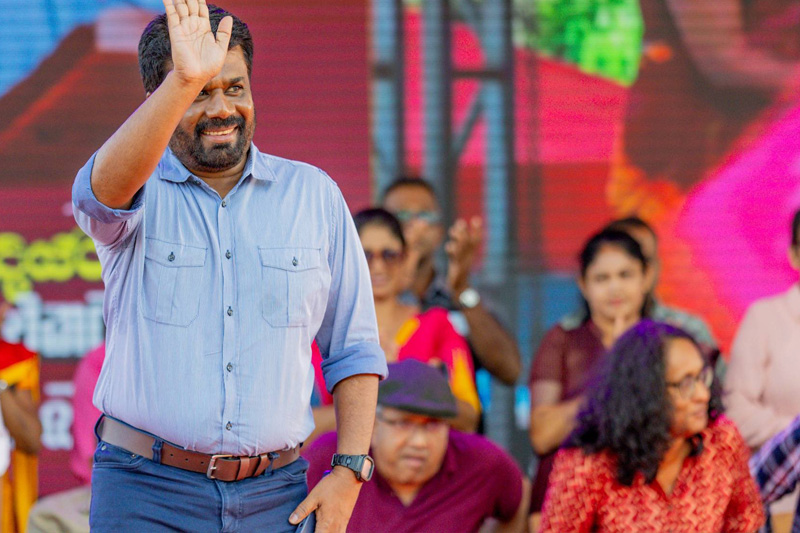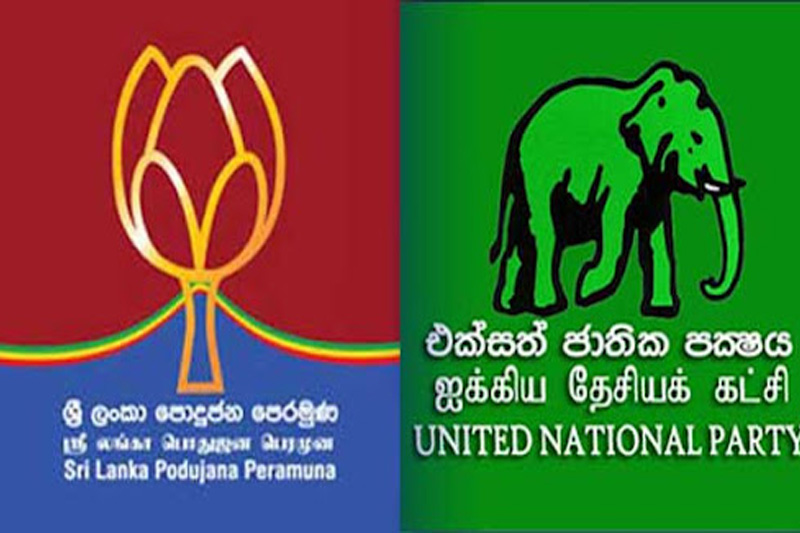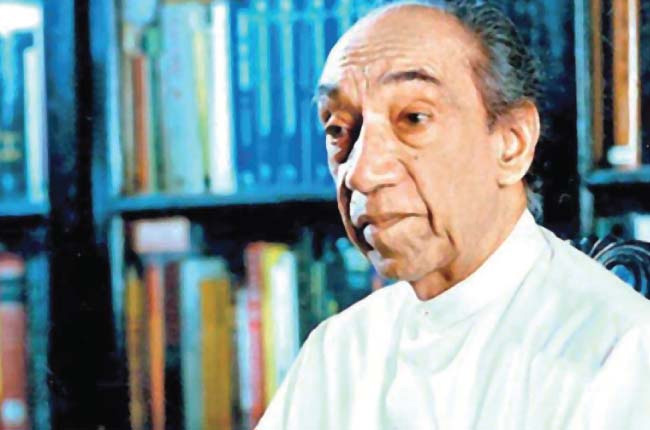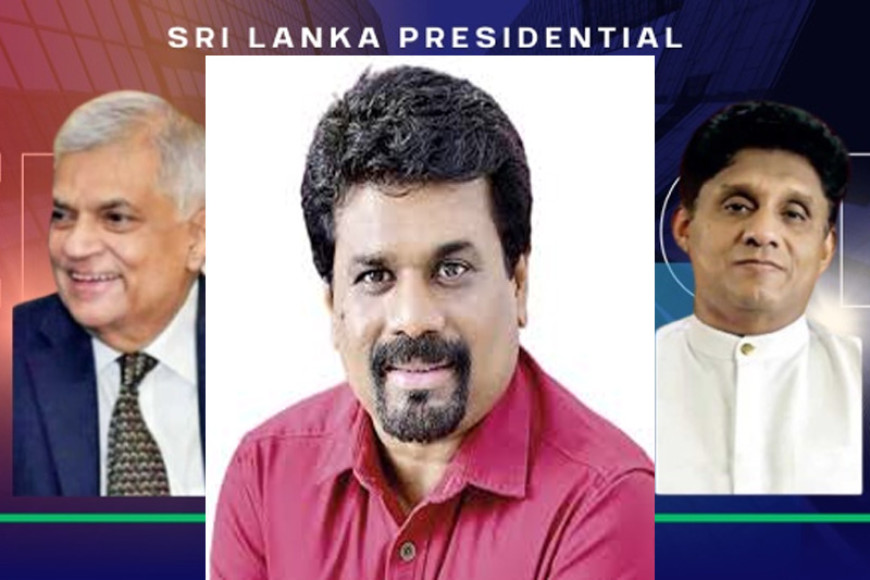As Sri Lanka nears its 2024 presidential election with just six days left, speculation is widespread over who will become the nation’s 10th president. Political analysts are forecasting a wave of defections and cross-party shifts beginning on Monday, the 16th of September, just four days before the election.
Many groups are claiming to have accurate predictions about the election outcome, which, by constitutional mandate, must take place on September 21, 2024.
The Institute of Health Policy (IHP) has been the most vocal in sharing its findings, regularly publishing polling results on voter intent. In its August 2024 edition, the IHP's Sri Lanka Opinion Tracker Survey (SLOTS) provided provisional estimates of voter preferences.
The data shows that NPP/JVP leader Anura Kumara Dissanayake and SJB leader Sajith Premadasa are ahead of the competition, leading in the voting preferences of Sri Lankan adults.
Despite this, none of the four major candidates has garnered a majority of support. Dissanayake leads with 36% of the vote, followed by Premadasa with 32%, President Ranil Wickremesinghe with 28%, and Namal Rajapaksa with 3%. The results come with a margin of error between 3% and 7%.

Dissanayake’s rise is notable given that his party, the Janatha Vimukthi Peramuna (JVP), has never been close to national power before. Historically, the JVP even led two Marxist insurrections against the very state that Dissanayake now aims to govern.
The turning point for the party came in 2022 during Sri Lanka’s economic collapse, which resulted in severe shortages of essential goods and skyrocketing inflation.
The IHP’s margin of error is officially stated to be between 1% and 4%. However, given the volatility of Sri Lankan politics and the sample size used in the poll, some analysts believe the actual error might be significantly higher than — possibly as high as 20%.
If this is the case, the voting intentions could vary widely, giving a range of possibilities, such as the JVP securing between 30% and 70% of the vote, which seems more realistic than the poll’s narrower error margin.
A critical factor in the final outcome could be the formation of political alliances. Some speculate that older, established parties may unite against the JVP to prevent its rise.
This might give both sides a reasonable chance of reaching the 50% needed to win outright. However, such alliances often come with penalties—voters in one party may be unhappy to ally with others they view unfavorably, such as racists, conspirators, or other controversial factions. This could shorten the odds for any such coalition.
On the other side, the current government, formed by an alliance between the UNP and SLPP, is also expected to align in the election.

Although there may be some alliance penalties in this scenario as well, they may be less pronounced than those affecting a broader anti-JVP coalition. Additionally, voter behavior often differs from pre-election polling, which might benefit the government alliance.
In this context, the JVP appears to have the best chance of reaching the crucial 50% vote threshold, but there’s still a strong possibility that no party will achieve this.
If no candidate wins an outright majority, it would mark the first time in Sri Lankan presidential history that second-preference votes would need to be counted, and how that process would play out remains uncertain.
There have been discussions about the SJB reuniting with the UNP, but it is unclear if this will happen. Should it occur, there is also a possibility that the SLPP might join forces with the "Old UNP," creating an "Old vs. New" two-way race. However, even in this scenario, the JVP would still have a good chance of hitting 50%, though the likelihood of a second-preference vote would increase.
Another possible outcome is a "four-horse race" where each party goes its own way without forming alliances. In this case, there would be no alliance penalties, giving the JVP the highest chance of achieving 50%, but once again, the second-preference vote scenario would remain likely.
It’s also worth considering that while the JVP may not enter into any alliances, the SJB may not align with the SLPP alone. Nevertheless, such outcomes cannot be ruled out completely.
In addition, internal divisions within parties might lead to members supporting different alliances, and smaller parties and minority groups may play a decisive role in the final result.
At 55 years old, Anura Kumara Dissanayake is not part of the current government, and his party, National People's Power (NPP), isn’t even the principal opposition.
The NPP holds only three seats in Sri Lanka's 225-member parliament, where it is the fourth-largest force. Historically, his party has been seen as having close ties with China, a major geopolitical rival to India.
Despite this, Dissanayake has recently gained a new level of authority in Sri Lankan politics, earning recognition as a rising force even from India, the regional superpower. As a surprise contender for the presidency, some opinion polls suggest that Dissanayake may even be the frontrunner in a crowded field of 38 candidates.
Among his competition are familiar faces from prominent political families: Namal Rajapaksa, son of former President Mahinda Rajapaksa; Sajith Premadasa, son of former president R. Premadasa; and incumbent President Ranil Wickremesinghe, nephew of Sri Lanka’s first executive President J.R. Jayewardene.

In the midst of growing dissent, President Wickremesinghe has been attempting to fracture the SLPP by persuading 92 of its MPs to distance themselves from the Rajapaksa family.
This move has reportedly angered the Rajapaksas, who are now looking at potential alliances, including one with Sajith Premadasa, to counter Wickremesinghe’s efforts.
Opposition leader Premadasa is also focused on preventing Wickremesinghe from running in the upcoming election. Wickremesinghe has been accused of trying to buy support from Premadasa’s SJB party through offers of money and government positions, further intensifying Premadasa’s determination to see him impeached.
Adding to the complexity, reports suggest that a major foreign power has promised to back both the Rajapaksa family and Sajith Premadasa in their efforts to oppose President Wickremesinghe. This international backing could have a significant impact on the election's outcome.
Meanwhile, Anura Kumara Dissanayake continues to gain momentum. Recent polls show him leading the presidential race with 59% of the vote. These developments, coupled with potential strategic international involvement, could further strengthen his position.
In anticipation of a possible NPP victory, a high-level foreign delegation is expected to visit Sri Lanka to meet with the NPP leadership.
This signals the international community’s growing expectation of an NPP win in the upcoming election. Amid this shifting political landscape, secret talks between Sajith Premadasa and Namal Rajapaksa suggest new alliances and strategies may emerge, all aiming to shape the outcome of Sri Lanka’s high-stakes presidential election.



